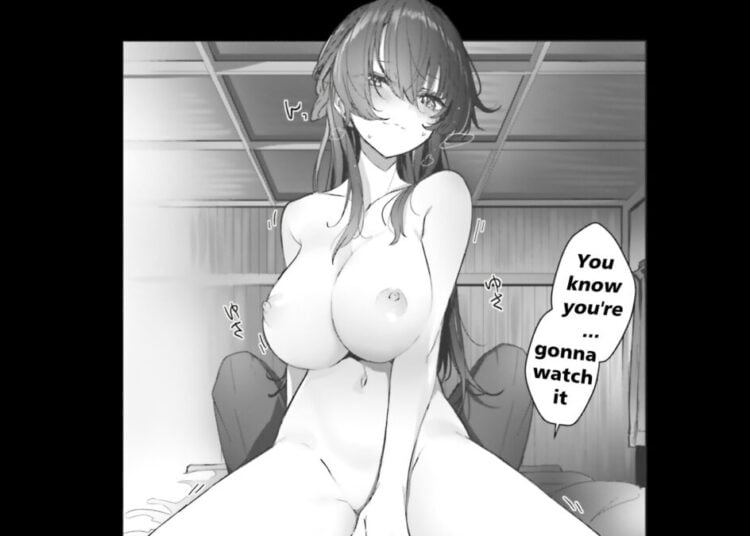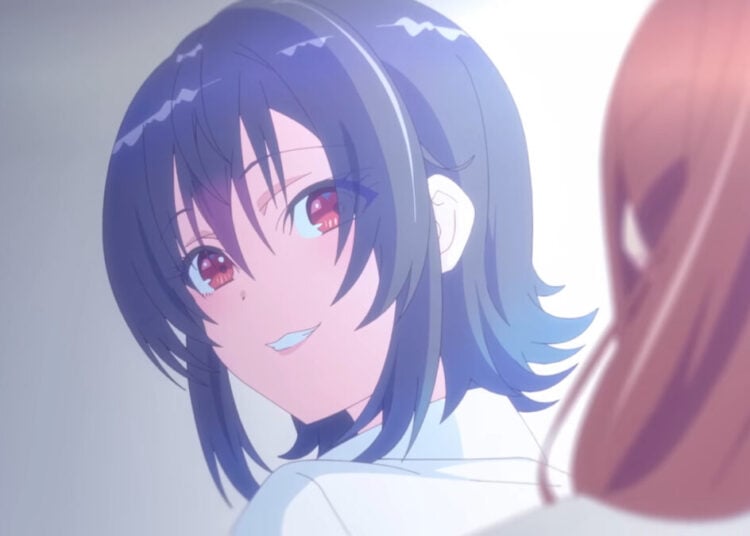In the wake of considerable backlash over Kadokawa President and CEO Takeshi Natsuno’s remarks promoting manga censorship, the company released a statement saying that those comments were “very inappropriate as the president of our company, and he deeply regrets it.” In addition to highlighting how he had returned 20% of his monthly executive compensation (from August to October 2021) in response to the issue, the press release also stressed that his comments did not represent the publisher’s policies. It appears as though the fans, both in Japan and abroad, have spoken.
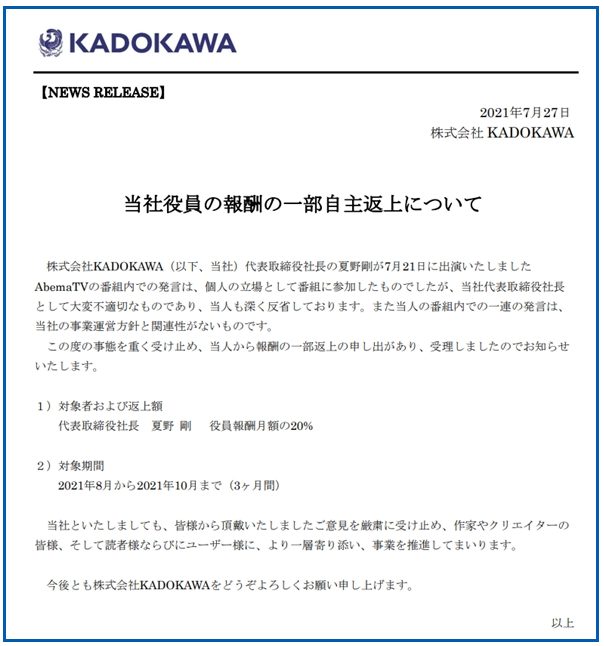
The controversy can be traced back to an AbemaTV broadcast from July 21st, entitled “Controversial Extremes! Is Swimsuit Gravure Necessary in Shonen Magazines?”, with gravure being a reference to semi-provocative, yet non-nude, modeling for Japanese magazines, DVDs, and photobooks aimed at men. Natsuno not only mentioned the review of “extreme” sexual expressions in manga — referring as well to more explicit, and erotic, content — but made the following remarks:
“There are more extreme manga in Japan than gravure. This and other factors prevent Japanese manga from being reviewed by Google and Apple. So, including that, I feel that we need to redefine the standards to what extent the public is allowed to use the Internet, but not from where. The publishing industry I’m in is full of libertarians, but I get the feeling that we need to pull back a bit.”
It wasn’t long before that statement sparked an outcry. Japanese Twitter account holder nmisaki, the doujin site owner who shared the transcript on July 25th, questioned whether Natsuno knew what he’s talking about, given that his comments are equivalent to saying that what’s important, “is not the freedom of manga expression, but the wider distribution of his company’s products”, even at the expense of censorship or being economically compromised.
マンガの性表現で「googleとかアップルの審査に通らない」ことをボーダーとして問題視することは、KADOKAWA社長である夏野氏にとって重要なことは、マンガ表現が自由であることよりも、自社の商品がより広範に流通されることだ、と言っているのに等しいわけですが…、わかってのご発言なんでしょうか?
— 三崎尚人 (@nmisaki) July 25, 2021
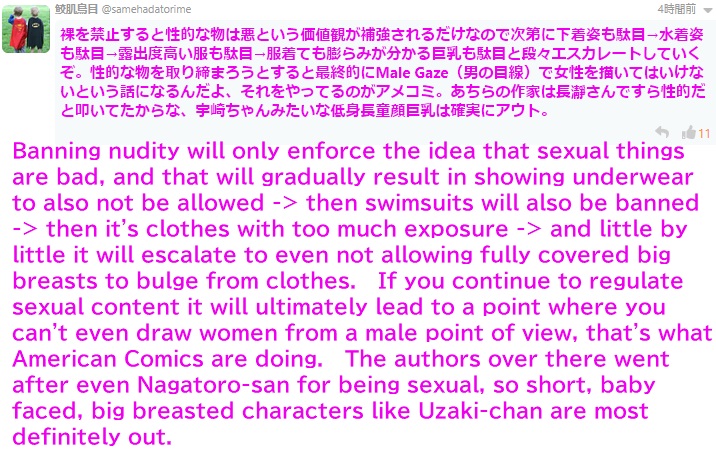
While some have floated approaching Councilor Taro Yamada over the situation, and even entertained buying stocks in Kadokawa, others have gone so far as to say that what’s being pushed is very dangerous. It would not only stifle creators’ liberties in writing what they want, and not having to worry about how they’d be received overseas — which, coincidentally, is part of why manga has attracted fans from across the globe. It would also destroy what’s made manga and anime as you know it, practically overnight, by terminally crippling their very strengths. This evidently has ramifications beyond just what constitutes unacceptable “sexual expression”.
これやったら、日本のマンガ、アニメの優位性が一気に消えますよ。
海外に受けるとか考えずに、描きたいものを自由に書いてきた結果、
逆に海外からも評価されるようになったんだから。KADOKAWAからこんな意見が出るのはかなり危険。 https://t.co/TqCwEdwwqj
— 知念実希人 小説家・医師 (@MIKITO_777) July 26, 2021
Within the company, meanwhile, Shigetaka Kurita, COO of subsidiary Dwango and owner of NicoNico, went on record stating that it has no plans on instituting any changes to its existing policies, whether on its video platform or NicoNico Manga. This suggests that even before the recent press release, not everyone was on board with what Natsuno had in mind.
ニコニコはプラットフォームとしての表現規制方針を現状から変更する予定はありません。ニコニコ漫画も同様です。
— くりたしげたか(Re)🌰ニコニコ代表の人 (@sigekun) July 26, 2021
The backlash has also reverberated internationally. In addition to what Japanese audiences have remarked, overseas fans from as far as America, Spain, and Germany have stressed how manga’s creativity and freedom of expression are part of what makes it so appealing. Moreover, some have sounded alarms, given both the censorious trends within Silicon Valley and America’s divisive cultural landscape, that adopting such “standards” to avoid being denied access to Western markets will only mean gloom for Japan.
Also, keep in mind that mobile publishing standards are going to be enforced worldwide. So this will change manga/games in Japan, not just over here.
It’s already happened with Playstation once the US office set the standards.
— Grummz (@Grummz) July 26, 2021
It’s worth noting, however, that this whole affair isn’t the first gaffe involving Natsuno. In addition to stressing how Kadokawa doesn’t need Google or Apple to sell manga, and that the existing state of affairs is too profitable for companies to recklessly abandon, translator On Takahashi brought up how the CEO is also in a PR bind. He recently tried justifying events other than the Olympics being canceled due to COVID-19 because “they’re boring as shit like a kid’s piano performance”. Sufficed to say, the stakeholders are no more happy over such back-to-back controversies than the fans are.
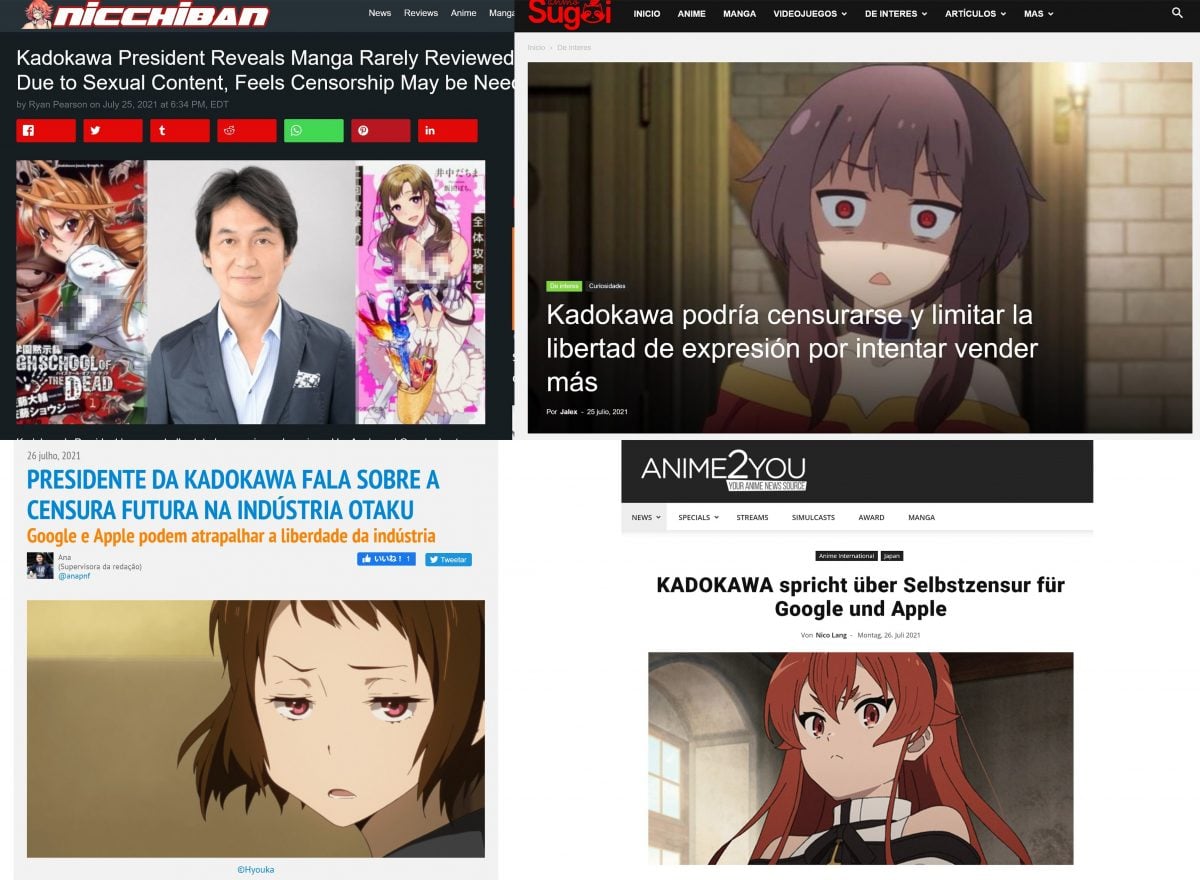
While it remains to be seen how Natsuno will conduct himself from here on, and though a few remain skeptical, it’s safe to say that manga, if not the rest of Japan’s cultural industries, has dodged a bullet. If anything, it’s a reassuring sign that the future still remains bright.


